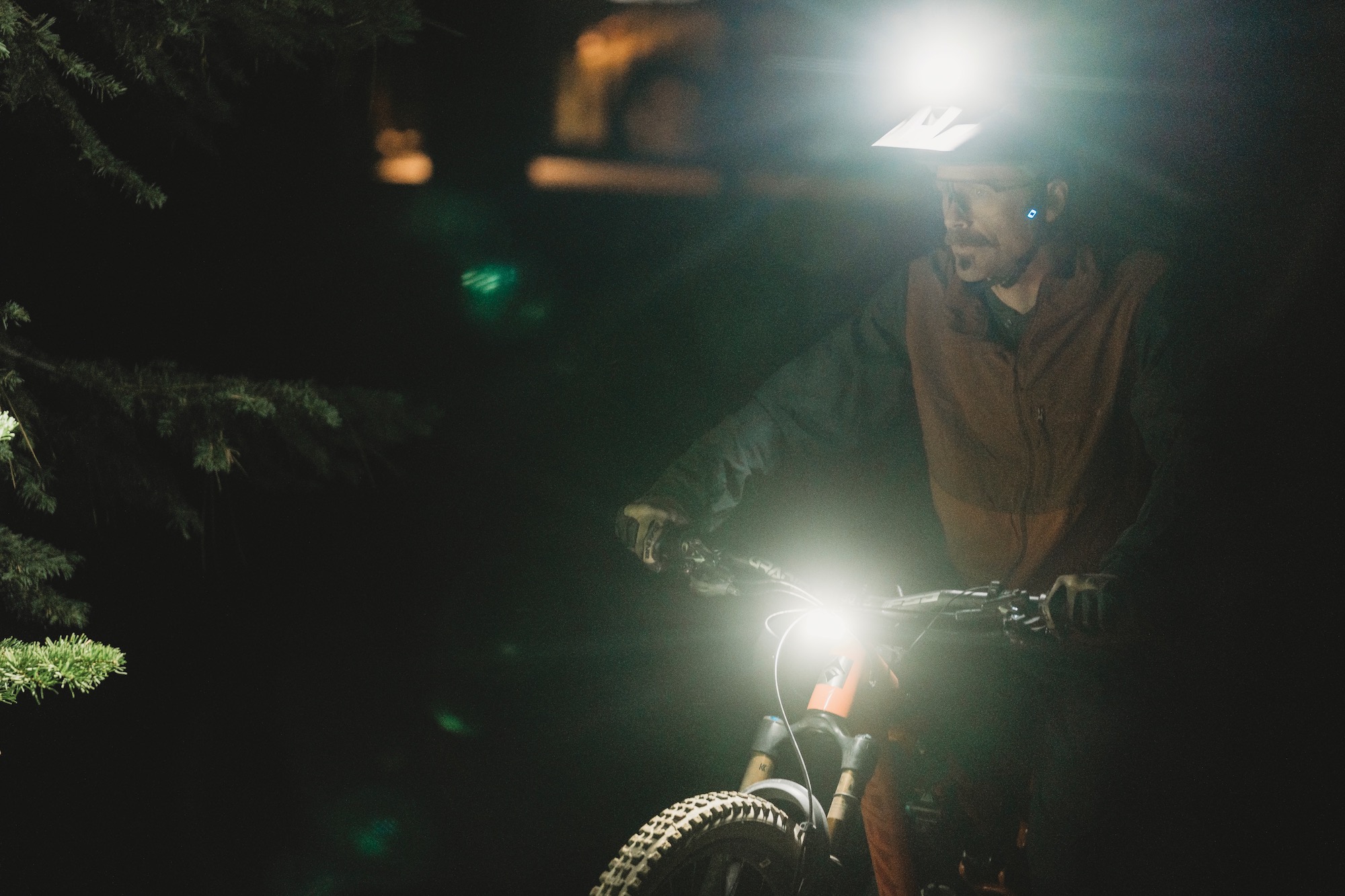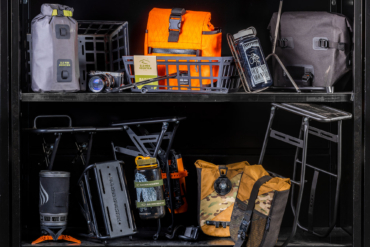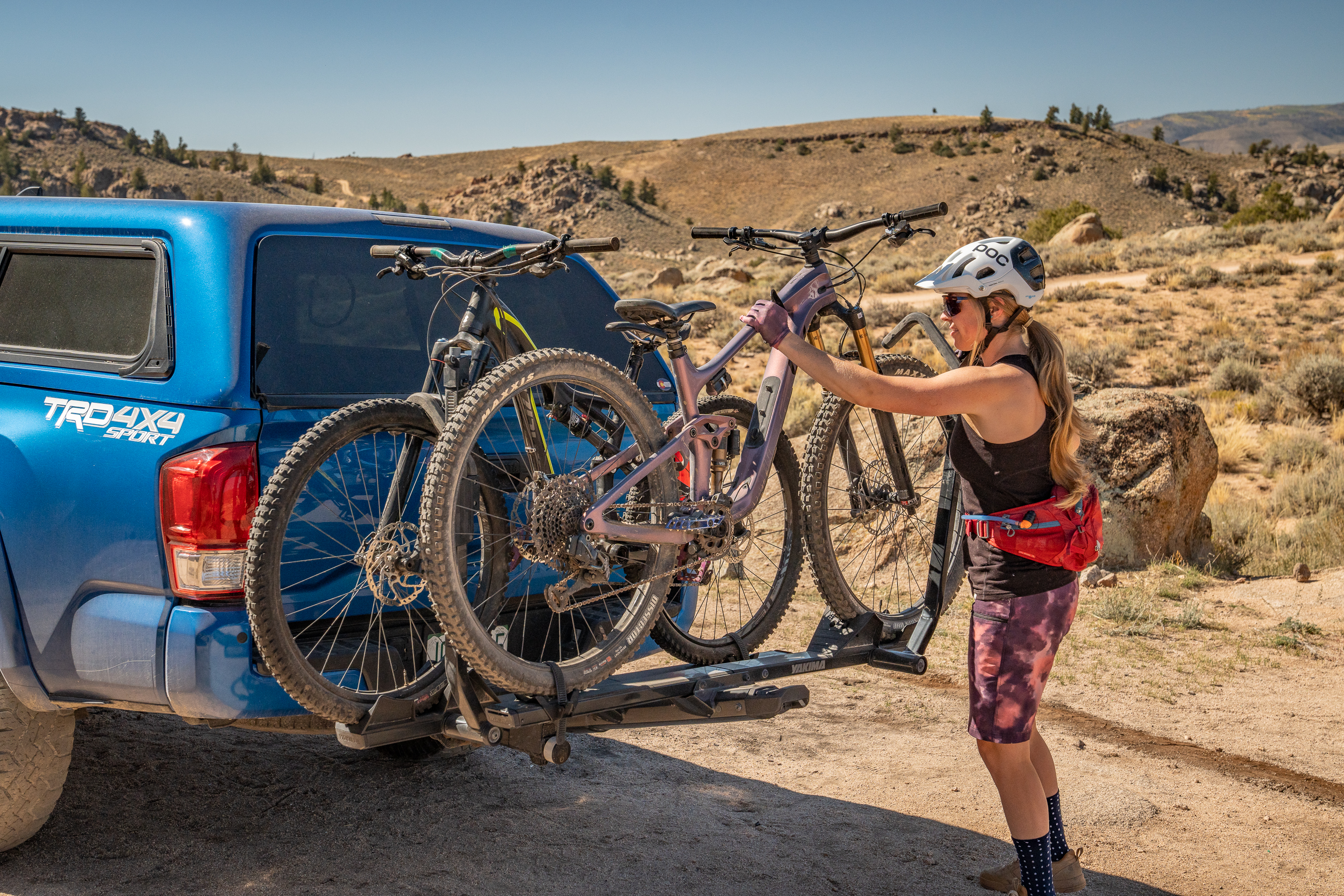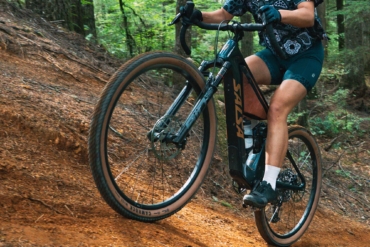The mountain bike industry has seen exponential growth throughout this past year, hitting numbers that have shocked companies and professionals in the outdoor recreation world. More people are getting outdoors and wanting to experience it in a new and exciting way.
The good news is that there’s plenty on the market for everyone. And being intentional with your mountain bike tires is a great way to update your ride.
Whether you’re a newcomer to the exciting world of mountain biking or an experienced rider looking to upgrade your tires, this guide gives you all the information you need to choose the right tires and hit the trails with confidence.
Scroll through our selections or jump to the category you’re looking for:
- Best Overall Front Tire
- Runner-Up Front Tire
- Best Overall Rear Tire
- Best Budget Tire
- Best Studded Winter Tire
- Best XC Tire
For more help choosing the best mountain bike tires, check out our buyers guide and frequently asked questions at the end of this article.
The Best Mountain Bike Tires of 2021
Best Overall Front Tire: Maxxis Minion DHF 3C Terra EXO TR WT Tire

Maxxis is a staple in the biking industry. Professional athletes used this tire in the World Cup and the Olympics because its quality and durability are unparalleled. While this tire is often used within the professional biking scene, it also reigns as the must-have tire to hit your local trails.
It can commonly be described as beefy and it’s profoundly traction-focused. This tire provides that needed balance of fast rolling with an aggressive tread pattern. It’s ideal for those looking for a downhill or trail-riding tire that gives you the stability and traction that you need.
Not only does this tire meet all of the qualifications needed to hit the trails, but it’s a good bang for your buck at $84.
Specs:
- Sizes available: 27.5″ x 2.5″
- Weight: 945 g (2.08 lbs.)
Pros:
- Aggressive tread
- Can handle a wide variety of terrain, sand, mud, and dry conditions
- EXO Protection provides increased reliability and durability
- Affordable while maintaining superior quality
Cons:
- While it has great grip, it can roll a little slower
Check Price at REICheck Price at Competitive Cyclist
Runner-Up Front Tire: Michelin Wild Enduro Tire

Michelin designed the Wild Enduro Tire ($70) specifically for the needs of enduro riders, and it hit it out of the park.
This tire is primarily side-knob dominant, allowing the tire to dig in and grip when racing around a sharp corner. While this tire is a fairly new design in recent years, the overall impressions are immensely positive.
The Enduro Tire has been thoroughly tested in a variety of terrain and has thrived in both wet and dry conditions. The Gum-X rubber compound technology used in this tire was inspired by the company’s extensive background in the automotive industry.
Let’s just say, this tire was built to go fast.
Specs:
- Sizes available: 29″ x 2.4″ / 27.5″ x 2.80″
- Weight: 1,088 g (2.4 lbs.)
Pros:
- Side knob design for increased grip
- Stiffer, harder rubber for durability
Cons:
- Slightly heavier
Check Price at REICheck Price at Amazon
Best Overall Rear Tire: Maxxis Minion DHR II

If you’re looking for a lightweight yet durable tire, look no further than the Minion DHR II ($82). While the design is incredibly similar to its predecessor, the Minion DHF, the one notable difference between the two is the weight. The Minion DHR II rings in at a mere 805 g compared to the heavier Minion DHF at 945 g.
Even experts have a tough time defining which tire is better. But the overall consensus is that the Minion DHR II has better braking power due to the slight adjustments in design between the center and side knobs.
As this tire was intended to be used for a downhill rear wheel, it can function for enduro or trail-riding styles. If you’re looking to shed some weight on your bike and race down the hill with increased efficiency, then this is the tire for you.
Specs:
- Sizes available: 27.5″ x 2.3″ / 27.5″ x 2.4″ / 27.5″ x 2.6″, many other sizes including options for 26″ and 29″ rims are also available
- Weight: 805 g (1.77 lbs.)
Pros:
- Lightweight
- Durable and reliable
- Improved design for better braking power
Cons:
- Can be more expensive based on increased durability options
Check Price at REICheck Price at Amazon
Best Budget Tire: Continental ShieldWall Mountain Bike Tire

Continental, a German-based company, designed an affordable tire that can perform for slightly less aggressive riders. The ShieldWall tire ($32-64) would ideally be used for trail riding and gravel roads, as well as an all-mountain tire option.
The tire is very lightweight at 760 g and provides a generous amount of grip with its equally spaced knob design. The center knobs have a slightly lower profile, allowing the raised side knobs to do the hard work of gripping on loose terrain.
The ShieldWall tire provides high puncture protection, and it’s proven to hold up to its name. The three-layer rubber compound used within the tubeless tire is composed of an extensive technology designed by Continental.
If you’re starting out in the mountain biking world and you need a consistent, durable, and affordable tire to get started, this tire will give you the courage you need.
Specs:
- Sizes available: 26″ x 2″ / 26″ x 2.2″ / 26″ x 2.3″ / 27.5″ x 2″ / 27.5″ x 2.2″ / 27.5″ x 2.3″ / 27.5″ x 2.4″ / 29″ x 2″ / 29″ x 2.2″ / 29″ x 2.3″ / 29″ x 2.4″
- Weight: 760 g (1.67 lbs.)
Pros:
- Affordable tire for cross-country or entry-level trail riders
- Lightweight
- A lower tread profile for increased speed
Cons:
- Not as easy to install
Best Studded Winter Tire: 45NRTH Wrathchild Studded Tire

Let’s face it — Minnesotans know snow and ice. This Minnesota company has paved the way for a durable, quality tire that can handle the best of extreme conditions.
The Wrathchild Tire ($230) has a unique quality, as it is composed of 252 carbide-tip concave studs that give the tire its ruggedness. The large, open-spaced tread pattern is ideal for thicker terrain such as snow and mud. Paired with the studded feature, this tire can handle ice in any condition.
The objective with a larger tire of this caliber is to easily shed that extra weight of accumulated elements as the tire continues to rotate. The heavy-duty tire weighs 1,043 g, yet it’s flexible and can adapt to any terrain you can put it through.
While this tire is listed as an all-season tire, it’s not recommended for road cycling or on the pavement, as the studs can be easily worn down and damaged. This tire is perfect for a rider who lives in a harsher climate yet still enjoys being active in the winter months.
Specs:
- Sizes available: 27.5″ x 3″ / 29″ x 2.6″
- Weight: 1,043 g (2.29 lbs.)
Pros:
- Durability and stability
- Heavy duty
- Advanced technology of carbide-tip concave studs
Cons:
- The tire should only be used during winter months or in thick terrain
- More expensive
Check Price at REICheck Price at Competitive Cyclist
Best XC Tire: Vittoria Mezcal III G2.0 4C XC Trail Tire

Vittoria prides itself on the graphene compound used in its tires. The company is among the leaders bringing this technology to fruition in the biking industry.
The advanced technology has been proven to increase the speed and performance of its trail tires that make it a perfect fit for XC rider who wants to go fast. The alternating center-ridge tread pattern, combined with smaller compact knobs, allows this tire to have a fantastic grip with faster rolling.
The Vittoria Mezcal III tire ($77) is popular in global cross-country races. It’s also a favorite among professional athletes.
Specs:
- Sizes available: 27.5″ x 2.25″ / 27.5″ x 2.6″
- Weight: 660 g (1.45 lbs.)
Pros:
- Affordable
- Easy to install
- Lightweight
Cons:
- Not an all-mountain tire; primarily used for cross-country biking
Check Price at Competitive Cyclist
Buyers Guide: How to Choose Mountain Bike Tires
It can be a little overwhelming to choose tires if you’re brand new to mountain biking. The amount of information surrounding tires based on skill, terrain, and style of riding is tremendous.
Here are some foundational guidelines to help in the decision process.
Wheel Size & Tire Width
There are three wheel sizes: 26, 27.5, and 29 inches. The primary sizes are 27.5 and 29 inches, as the 26-inch tire is predominantly used for kids’ bikes. The first step is to establish your wheel size and then choose a width.
Tire width ranges from 1.9 to 5 inches, but the style of riding that you enjoy will determine what width is right for you. Typically, a cross-country bike has a thinner tire, as the objective is more focused on speed. These tires tend to range between 1.9 and 2.25 inches.
If you want to hit the trails and backcountry, a wider tire is more ideal as it has a larger surface to interact and gain traction. The recommended tire will range between 2.25 and 2.5 inches in width. A downhill bike is pretty similar and typically requires a 2.5-inch-wide tire.
Want to get out in the snow? A tire that can spread out while optimizing surface interaction will be 3.7 to 5 inches.

Front vs. Rear Tire
Each tire provides a unique benefit while out on the trail.
A front tire that has an aggressive tread pattern will be beneficial. It should feel as if the tire is helping to pull you up the mountain while simultaneously allowing you to confidently stick a line while going downhill. A rear tire complements the front tire with power and stability.
Traction
One of the most important factors when choosing a tire for your biking adventures is traction. The aggressiveness of the tread pattern essentially determines your experience on the trail.
As outlined, the shape, height, and size of the knob correlate with grip, braking power, and rolling resistance. A smaller knob design with a lower profile is better for hardpacked surfaces and allows for increased speed. On the other hand, a more intense and rugged knob design creates increased traction for downhill and trail riders.

Durability & Longevity
When purchasing a tire, the durability and longevity of that tire are of the utmost importance. Depending on the style of riding you enjoy, the level of durability will differ.
Some of the most durable tires will be listed as EXO Protection, EXO+ Protection, Double Down, or Downhill. Look for these in the descriptions when purchasing your tires.
Ease of Installation
While most of the tires outlined here are easy to install, there’s nothing wrong with bringing your bike and new tires to your local bike shop. They can certainly install it for you.
Value
Value is incredibly important. You’re investing in a product and ensuring it will contribute in a beneficial manner to your experience. Invest in quality tires!
You want to feel confident that those tires are going to hold up and keep up with you. Paying a higher price for a product is generally worth it in the long run.

FAQ
Which mountain bike tire is best for me?
First, establish which style of rider you are and then decide on a mountain bike tire. If you are just starting out in mountain biking, an all-mountain trail riding tire is highly recommended.
Are mountain bike tires directional?
Directional tires are clearly marked on the sidewall of the tire.







